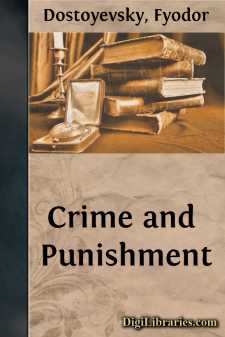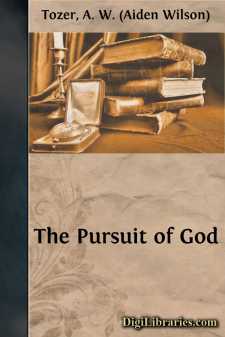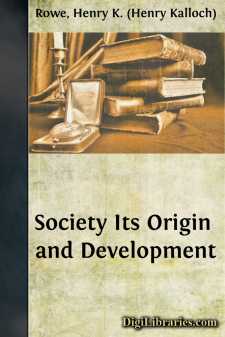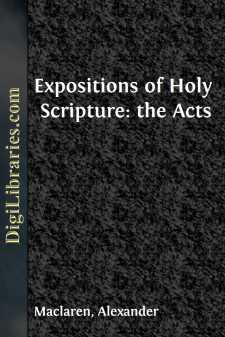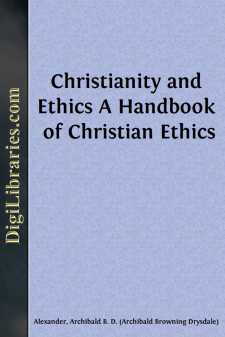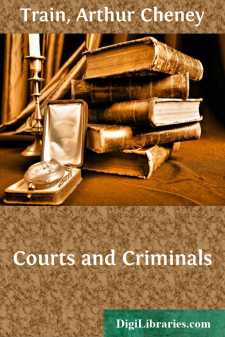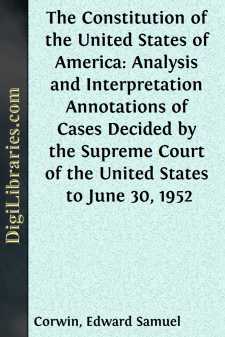Categories
- Antiques & Collectibles 13
- Architecture 36
- Art 48
- Bibles 22
- Biography & Autobiography 813
- Body, Mind & Spirit 142
- Business & Economics 28
- Children's Books 17
- Children's Fiction 14
- Computers 4
- Cooking 94
- Crafts & Hobbies 4
- Drama 346
- Education 46
- Family & Relationships 57
- Fiction 11829
- Games 19
- Gardening 17
- Health & Fitness 34
- History 1377
- House & Home 1
- Humor 147
- Juvenile Fiction 1873
- Juvenile Nonfiction 202
- Language Arts & Disciplines 88
- Law 16
- Literary Collections 686
- Literary Criticism 179
- Mathematics 13
- Medical 41
- Music 40
- Nature 179
- Non-Classifiable 1768
- Performing Arts 7
- Periodicals 1453
- Philosophy 64
- Photography 2
- Poetry 896
- Political Science 203
- Psychology 42
- Reference 154
- Religion 513
- Science 126
- Self-Help 84
- Social Science 81
- Sports & Recreation 34
- Study Aids 3
- Technology & Engineering 59
- Transportation 23
- Travel 463
- True Crime 29
Sort by:
CHAPTER I On an exceptionally hot evening early in July a young man came out of the garret in which he lodged in S. Place and walked slowly, as though in hesitation, towards K. bridge. He had successfully avoided meeting his landlady on the staircase. His garret was under the roof of a high, five-storied house and was more like a cupboard than a room. The landlady who provided him with garret, dinners,...
more...
Introduction Here is a masterly study of the inner life by a heart thirsting after God, eager to grasp at least the outskirts of His ways, the abyss of His love for sinners, and the height of His unapproachable majesty—and it was written by a busy pastor in Chicago! Who could imagine David writing the twenty-third Psalm on South Halsted Street, or a medieval mystic finding inspiration in a small...
more...
CHARACTERISTICS OF SOCIAL LIFE 1. Man and His Social Relations.—A study of society starts with the obvious fact that human beings live together. The hermit is abnormal. However far back we go in the process of human evolution we find the existence of social relations, and sociability seems a quality ingrained in human nature. Every individual has his own personality that belongs to him apart from...
more...
THE ASCENSION 'The former treatise have I made, O Theophilus, of all that Jesus began both to do and teach, 2. Until the day in which He was taken up, after that He through the Holy Ghost had given commandments unto the Apostles whom He had chosen: 3. To whom also He shewed Himself alive after His passion by many infallible proofs, being seen of them forty days, and speaking of the things...
more...
When Day Is Done When day is done and the night slips down,And I've turned my back on the busy town,And come once more to the welcome gateWhere the roses nod and the children wait,I tell myself as I see them smileThat life is good and its tasks worth while. When day is done and I've come once moreTo my quiet street and the friendly door,Where the Mother reigns and the children playAnd the...
more...
INTRODUCTION A PLEA FOR THE STUDY OF CHRISTIAN ETHICS If, as Matthew Arnold says, conduct is three-fourths of life, then a careful inquiry into the laws of conduct is indispensable to the proper interpretation of the meaning and purpose of life. Conduct of itself, however, is merely the outward expression of character; and character again has its roots in personality; so that if we are to form a just...
more...
THE WORK OF CHRIST THE Word of God reveals, that all things were created by and for the Son of God. “All things were made by Him and without Him was not anything made that was made” (John i:3). “For by Him were all things created that are in heaven, and that are in earth, visible and invisible, whether they be thrones or dominions or principalities or powers; all things were created by Him and...
more...
TO THE TEACHER. This book is intended for children. The special objects which the author has aimed to accomplish in the preparation of the work have been: 1. To present as fully as possible and proper in a work of this character a statement of the laws of healthful living, giving such special prominence to the subject of stimulants and narcotics as its recognized importance and the recent laws relating...
more...
CHAPTER I. The Pleasant Fiction of the Presumption of Innocence There was a great to-do some years ago in the city of New York over an ill-omened young person, Duffy by name, who, falling into the bad graces of the police, was most incontinently dragged to headquarters and "mugged" without so much as "By your leave, sir," on the part of the authorities. Having been photographed and...
more...
INTRODUCTION It is my purpose in this Introduction to the Constitution of the United States, Annotated to sketch rapidly certain outstanding phases of the Supreme Court's interpretation of the Constitution for the illustration they may afford of the interests, ideas, and contingencies which have from time to time influenced the Court in this still supremely important area of its powers and of the...
more...


